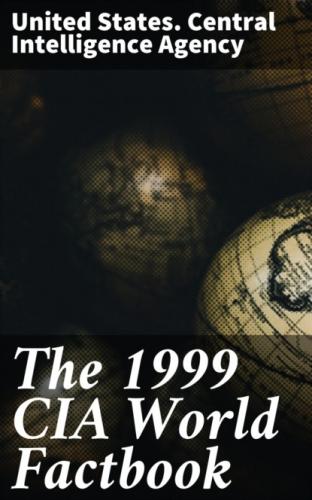local long form: Dawlat al Bahrayn
local short form: Al Bahrayn
Data code: BA
Government type: traditional monarchy
Capital: Manama
Administrative divisions: 12 municipalities (manatiq,
singular—mintaqah); Al Hadd, Al Manamah, Al Mintaqah al Gharbiyah,
Al Mintaqah al Wusta, Al Mintaqah ash Shamaliyah, Al Muharraq, Ar
Rifa' wa al Mintaqah al Janubiyah, Jidd Hafs, Madinat Hamad, Madinat
'Isa, Juzur Hawar, Sitrah
note: all municipalities administered from Manama
Independence: 15 August 1971 (from UK)
National holiday: National Day, 16 December (1971)
Constitution: 26 May 1973, effective 6 December 1973
Legal system: based on Islamic law and English common law
Suffrage: none
Executive branch:
chief of state: Amir HAMAD bin Isa Al Khalifa (since 6 March 1999);
Heir Apparent Crown Prince SALMAN bin Hamad (son of the monarch,
born NA 1969)
head of government: Prime Minister KHALIFA bin Salman Al Khalifa
(since 19 January 1970)
cabinet: Cabinet appointed by the monarch
elections: none; the monarch is hereditary; prime minister appointed
by the monarch
Legislative branch: unicameral National Assembly was dissolved 26
August 1975 and legislative powers were assumed by the Cabinet;
appointed Advisory Council established 16 December 1992
Judicial branch: High Civil Appeals Court
Political parties and leaders: political parties prohibited
Political pressure groups and leaders: several small, clandestine
leftist and Islamic fundamentalist groups are active; following the
arrest of a popular Shi'a cleric, Shi'a activists have fomented
unrest sporadically since late 1994, demanding the return of an
elected National Assembly and an end to unemployment
International organization participation: ABEDA, AFESD, AL, AMF,
ESCWA, FAO, G-77, GCC, IBRD, ICAO, ICRM, IDB, IFC, IFRCS, IHO, ILO,
IMF, IMO, Inmarsat, Intelsat, Interpol, IOC, ISO (correspondent),
ITU, NAM, OAPEC, OIC, OPCW, UN, UN Security Council (temporary),
UNCTAD, UNESCO, UNIDO, UPU, WFTU, WHO, WIPO, WMO, WTrO
Diplomatic representation in the US: chief of mission: Ambassador Dr. Muhammad ABD AL-GHAFFAR Abdallah chancery: 3502 International Drive NW, Washington, DC 20008 consulate(s) general: New York
Diplomatic representation from the US: chief of mission: Ambassador Johnny YOUNG embassy: Building No. 979, Road 3119 (next to Al-Ahli Sports Club), Block 3119, Zinj District, Manama mailing address: American Embassy Manama, PSC 451, FPO AE 09834–5100; International Mail: American Embassy, Box 26431, Manama
Flag description: red with a white serrated band (eight white points) on the hoist side
Economy
Economy—overview: In Bahrain, petroleum production and processing account for about 60% of export receipts, 60% of government revenues, and 30% of GDP. Economic conditions have fluctuated with the changing fortunes of oil since 1985, for example, during and following the Gulf crisis of 1990–91. With its highly developed communication and transport facilities, Bahrain is home to numerous multinational firms with business in the Gulf. A large share of exports consists of petroleum products made from imported crude. Construction proceeds on several major industrial projects. Unemployment, especially among the young, and the depletion of both oil and underground water resources are major long-term economic problems.
GDP: purchasing power parity—$8.2 billion (1998 est.)
GDP—real growth rate: −2% (1998 est.)
GDP—per capita: purchasing power parity?$13,100 (1998 est.)
GDP—composition by sector: agriculture: 1% industry: 46% services: 53% (1996 est.)
Population below poverty line: NA%
Household income or consumption by percentage share:
lowest 10%: NA%
highest 10%: NA%
Inflation rate (consumer prices): −0.2% (1996 est.)
Labor force: 150,000 (1997 est.)
note: 44% of the population in the 15–64 age group is non-national
(July 1998 est.)
Labor force—by occupation: industry, commerce, and service 79%,
government 20%, agriculture 1% (1997 est.)
Unemployment rate: 15% (1996 est.)
Budget:
revenues: $1.5 billion
expenditures: $1.9 billion, including capital expenditures of $NA
(1999 budget)
Industries: petroleum processing and refining, aluminum smelting,
offshore banking, ship repairing; tourism
Industrial production growth rate: 3.4% (1995)
Electricity—production: 4.7 billion kWh (1996)
Electricity—production by source: fossil fuel: 100% hydro: 0% nuclear: 0% other: 0% (1996)
Electricity—consumption: 4.7 billion kWh (1996)
Electricity—exports: 0 kWh (1996)
Electricity—imports: 0 kWh (1996)
Agriculture—products: fruit, vegetables; poultry, dairy products; shrimp, fish
Exports: $4.7 billion (f.o.b., 1997)
Exports—commodities: petroleum and petroleum products 61%,
aluminum 7%
Exports—partners: India 18%, Japan 11%, Saudi Arabia 8%, South
Korea 7%, UAE 5% (1997)
Imports: $4.4 billion (f.o.b., 1997)
Imports—commodities: nonoil 59%, crude oil 41%
Imports—partners: Saudi Arabia 45%, US 10%, UK 6%, Japan 5%,
Germany 4% (1997)
Debt—external: $2 billion (1997)
Economic aid—recipient: $48.4 million (1995)
Currency: 1 Bahraini dinar (BD) = 1,000 fils
Exchange rates: Bahraini dinars (BD) per US$1—0.3760 (fixed rate)
Fiscal year: calendar year
Communications
Telephones: 73,552 (1987 est.)
Telephone system: modern system; good domestic services and
excellent international connections
domestic: NA
international: tropospheric scatter to Qatar and UAE; microwave
radio relay to Saudi Arabia; submarine cable to Qatar, UAE, and
Saudi Arabia; satellite earth stations—2 Intelsat (1 Atlantic Ocean
and 1 Indian Ocean)
